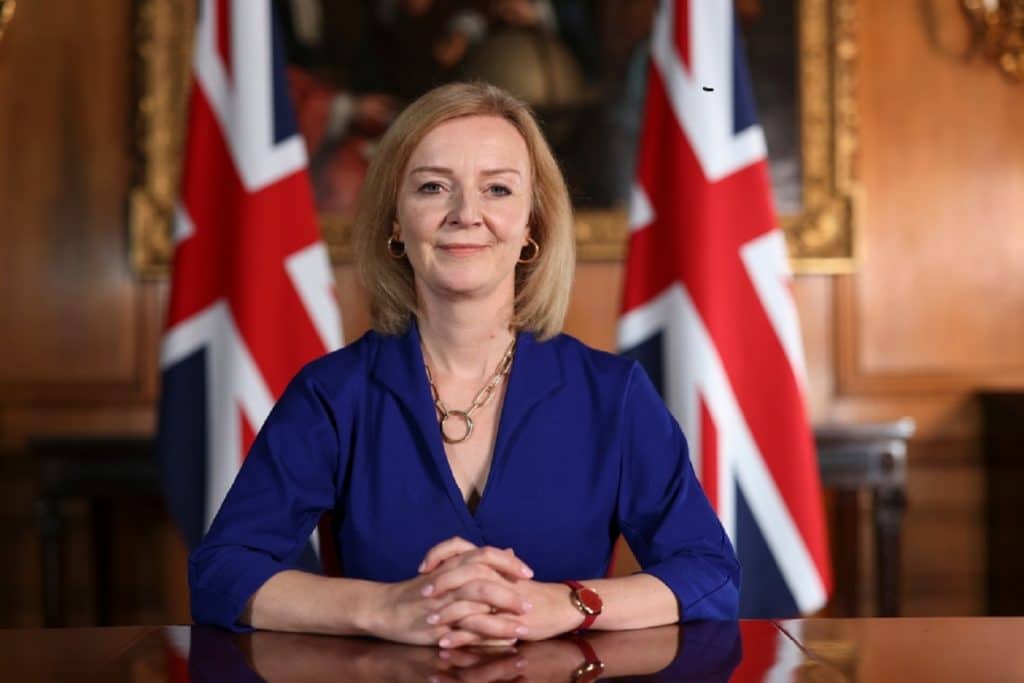There’s a lot going on in British politics right now with speculation that Liz Truss’ disastrous month in power could see her leave office within days.
It was only just last month that Truss beat out political opponent, Rishi Sunak, to take over from Boris Johnson and become Britain’s third female Prime Minister.
Why could Truss be out of the job so quickly?
Since Truss became Prime Minister, the UK’s economy has plummeted.
The pound dropped to record lows after Truss pitched a mini-budget with billions of pounds of unfunded tax cuts and energy handouts that sparked market turmoil. This subsequently forced her to abandon everything she promised in her campaign.
The mini-budget plan was announced and backed by Truss and the former British Chancellor of the Exchequer, Kwasi Kwarteng.
After announcing the tax cuts, Truss and Kwarteng didn’t explain how they would fund the budget considering the government would now be taking in less tax revenue.
Truss argued that the measures would promote economic growth and bring more revenue into government, but without an explanation for how the government was going to pay for the budget, pushback said that Britain would have to borrow more money and watch its debt levels increase.
This lack of an explanation from Truss’s mini-budget fuelled investor concern, which pushed up government borrowing costs, raised home mortgage costs and sent the pound’s value to an all-time low against the dollar.
The Bank of England was forced to intervene in the bond markets to protect pension funds.
Labor Shadow Chief Secretary to the Treasury Pat McFadden called Truss’s plan a “complete humiliation” for her.
“The damage has now been done. She’s in an impossible position where the survival of the government is dependent on publicly torching everything that she believes,” McFadden says.
Following this disaster, Truss sacked Kwarteng, who had spent less than six weeks in the role, and she made Jeremy Hunt the new UK Chancellor of the Exchequer.
Nonetheless, more criticism of her leadership came along when Jeremy Hunt announced a U-turn of Truss’s proposed tax cuts. Much of the public viewed Truss’ authority as being undermined by her decision to let Hunt tear up her economic agenda, believing that Hunt is now running the government.
This week, Hunt confirmed: “We will reverse almost all the tax measures announced in the growth plan three weeks ago that have not started parliamentary legislation.”
Following the U-turn announcement on tax cuts, Truss backpedaled on her commitment to the triple lock, meaning she no longer promises to increase state pensions in line with surging inflation.
The PM’s spokesperson said Truss was “not making any commitments” on government spending and that the move away from the triple lock– having pension payments rise by whatever is highest: prices, average earnings or 2.5%– was a “mutual decision” by the PM and the chancellor.
Will Truss be replaced?
Talking to the BBC, Truss apologised for “mistakes” in her program, but said she would not step down and that she “will lead the Conservatives into the next general election.”
Confidence in Truss’s leadership abilities, however, doesn’t seem redeemable from either the public or member’s of her own party.
There are a few pathways open for Truss to leave office and it’s likely one will be successful quite soon.
Truss stepped into the role of Prime Minister via an internal party ballot and as per Conservative Party rules, she has 12 months amnesty against a leadership challenge. This doesn’t mean, however, that enough pressure to resign couldn’t push her to step down of her own accord– this is the simplest and cleanest pathway.
Another option is for the Conservative Party to change their rules and allow a vote on her leadership. If enough Tory MPs submit letters of no confidence in Truss’s leadership, this could occur, with a new successor named in her place. Ben Wallace, Rishi Sunak and Penny Mordaunt are the three names being talked about for the role of Prime Minister.
A third option – Parliament could trigger a general election in a motion of no confidence in the government. This is the least likely to occur but would also allow for the removal of Truss.
Whatever it is that occurs in upcoming days, one thing’s for certain – Truss has made some disastrous mistakes in the short time she’s been at 10 Downing Street.
The public is in clear dismay with a YouGov poll released on Tuesday (London Time) showing almost eight in 10 people now disapprove of Britain’s Conservative government, the highest number recorded in 11 years.
As for the potential of a new Prime Minister, Truss’ successor would be the third Conservative Party leader in this electoral cycle and would have a hard time gaining back any ground that Truss has lost with the electorate.


